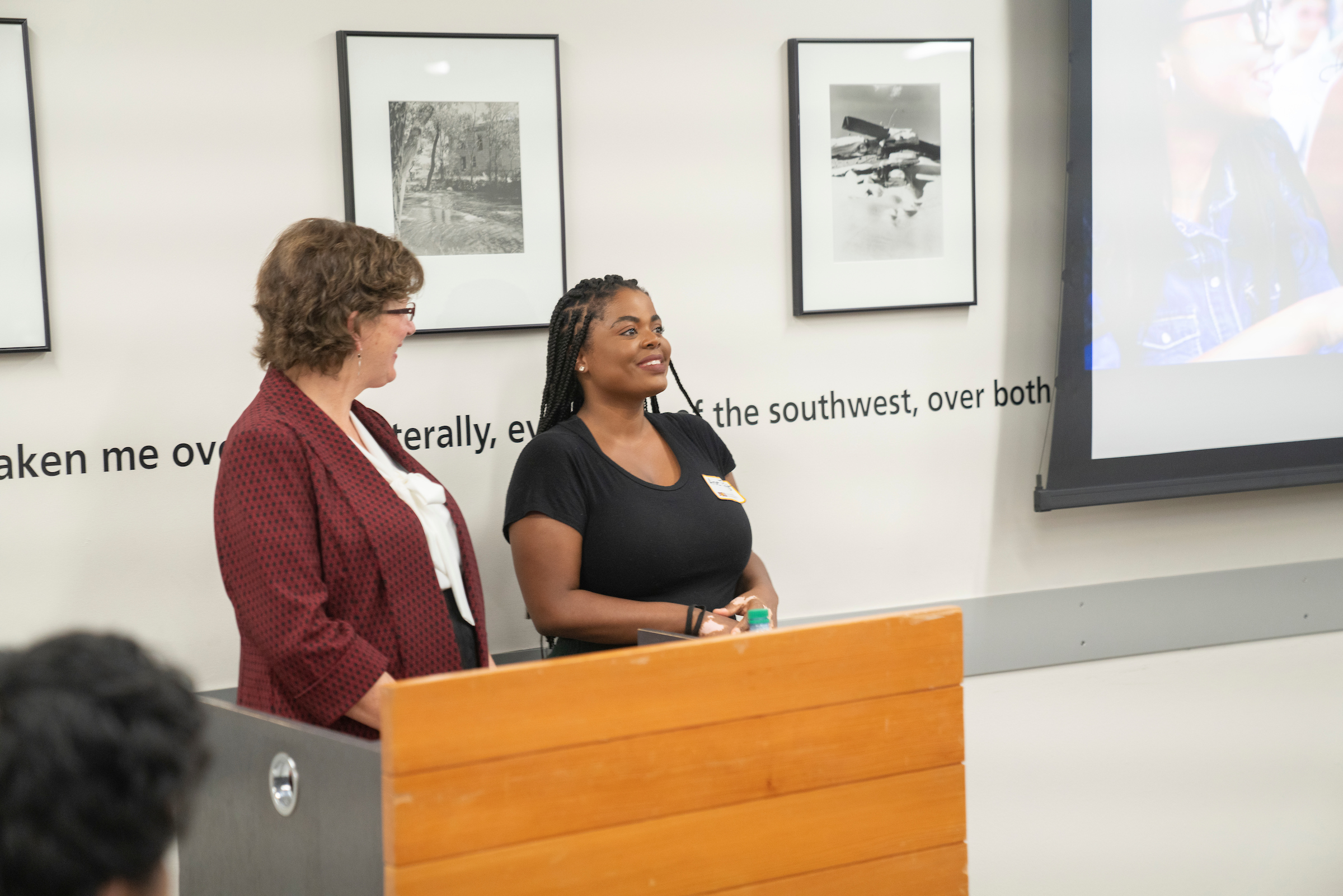New ASU online program will train adults to help foster youths prep for college

Editor's note: This story is being highlighted in ASU Now's year in review. Read more top stories from 2019.
The path to college can be challenging for many people, but youths who have been in foster care can face extra obstacles.
Six years ago, Arizona passed a law that allows former foster youth to attend the state’s community colleges and public universities tuition-free. But it turns out that making the leap to college includes difficulties beyond tuition, according to experts at Arizona State University who work with foster youth.
“I was surprised that after SB1208 passed there weren’t more students coming and I learned a lot more about the complexities of that,” said Jeanne Hanrahan, director of community outreach for University College at ASU.
Many foster youths change schools frequently, making record-keeping difficult, and even when they’re in a stable environment, they don’t always have an adult who can help them choose the right high school courses and think about higher education.
Now, ASU has created a free, online training program for people who want to help foster youth become ready for college. Empower, a self-paced, six-module course, launched this week. The training is targeted to foster parents, relatives, case managers, school counselors, teachers, mentors, court-appointed advocates or anyone else who has a supportive relationship with foster youth.
The 35-minute modules include videos, downloadable guides, case studies, assessments, surveys and learning exercises that cover not only practical tips on how to help foster youth plan for college but also how to understand their trauma and resilience.
“One of the challenges that our students have shared with us is how adults have low expectations for them and their futures,” Hanrahan said.
Jeanne Hanrahan (left) director of community outreach for University College, listens as ASU student Aroe Talbot describes how a supportive adult helped her create a path to college at a launch event for the Empower online program. Photo by Marcus Chormicle/ASU Now
Empower teaches users about “growth mindset,” a way of reframing experiences and using strategies to see what can be learned from challenges and failures and how a path can be changed.
Hanrahan created ASU’s Bridging Success Early Start program for foster youth in 2015, and said that over the years, she’s seen the power of supportive adults in the lives of these young people.
“That has been the seed of what we’re doing with Empower,” she said.
“We know that without one supportive adult, most of these young people will not come to college.”
Earlier this summer, ASU gathered community partners and allies in the foster system to introduce them to Empower and show some of the videos that are included in the course work. Some of the former foster youth who are now ASU students appear in the videos and they described their experiences.
Aroe Talbot, a senior majoring in Spanish and social work, talked about the difference her high school social worker made in her life.
“She met me in the lowest parts of my life and proved to me that love, support and belief can change a life forever,” Talbot said.
“She gave me her time and dedication and open ears and big heart.”
Talbot was separated from her mother and four siblings as a child. She described the shame, trauma and fear she experienced.
“I had to witness and face some of the toughest challenges I wasn’t sure I could overcome, and in some way I thought this was because I had failed as a child and was deemed unworthy,” she said.
The social worker supported Talbot while she finished high school in three years, attended basketball games where Talbot was a cheerleader and gave her rides to scholarship interviews.
“To look her in the eyes with my high school diploma and acceptance to ASU was one of the greatest moments of my life,” Talbot said.
Hanrahan said that even professionals like high school counselors need help with the unique situation of foster youths, which is why Empower is important.
“It’s complicated because there’s a lot of specialized information for these youths, in particular because of the fact that they can have transcripts from four or five schools, so chasing down records is extremely challenging,” she said.
“They have a lot of different kinds of documentation required to access aid and the state voucher, and high school counselors want this information but it’s super confusing.”
Hanrahan first began working with foster youth about 12 years ago when she joined the advisory board of the Nina Mason Pulliam Legacy Scholars program, which provides support for students who have special challenges, such as being in foster care.
“I got to know a lot about their stories, and I really saw the need for ASU to respond to that,” she said.
“The Bridging Success Early Start program was my vision to have a welcoming space for them.”
The free, six-day Bridging Success Early Start orientation on campus is a chance for former foster youth to meet each other, connect with peer mentors, get supplies (such as laptops donated by Insight and Target gift cards through Helen’s Hope Chest), learn about university resources, attend workshops and find support for dealing with their unique challenges.
Students can take a one-credit academic success course their first semester and get connected to tutoring support.
“One of the things that often happens with foster youth who spend time in a group home is that they have few opportunities to make decisions for themselves, such as choices about how late they stay up or what to eat for dinner,” Hanrahan said.
“Coming to a college campus where they have no one telling them what to do, when to go to bed, when to get up for classes, is overwhelming.”
Both Bridging Success and the Empower training are financially supported by Women in Philanthropy.
While originally intended for adults who were already connected to foster youth, Hanrahan said there’s been a lot of interest from community members outside of the system, so people who complete the course will be referred to groups that work with foster youths.
Talbot thanked those at the community event who helped to create the Empower training.
“I thank you for recognizing that individuals like myself are very much worth fighting for and for recognizing that we are not broken.”
More Arts, humanities and education

2 ASU professors, alumnus named 2025 Guggenheim Fellows
Two Arizona State University professors and a university alumnus have been named 2025 Guggenheim Fellows.Regents Professor Sir Jonathan Bate, English Professor of Practice Larissa Fasthorse and…

ASU instructor’s debut novel becomes a bestseller on Amazon
Desiree Prieto Groft’s newly released novel "Girl, Unemployed" focuses on women and work — a subject close to Groft’s heart.“I have always been obsessed with women and jobs,” said Groft, a writing…

‘It all started at ASU’: Football player, theater alum makes the big screen
For filmmaker Ben Fritz, everything is about connection, relationships and overcoming expectations. “It’s about seeing people beyond how they see themselves,” he said. “When you create a space…


